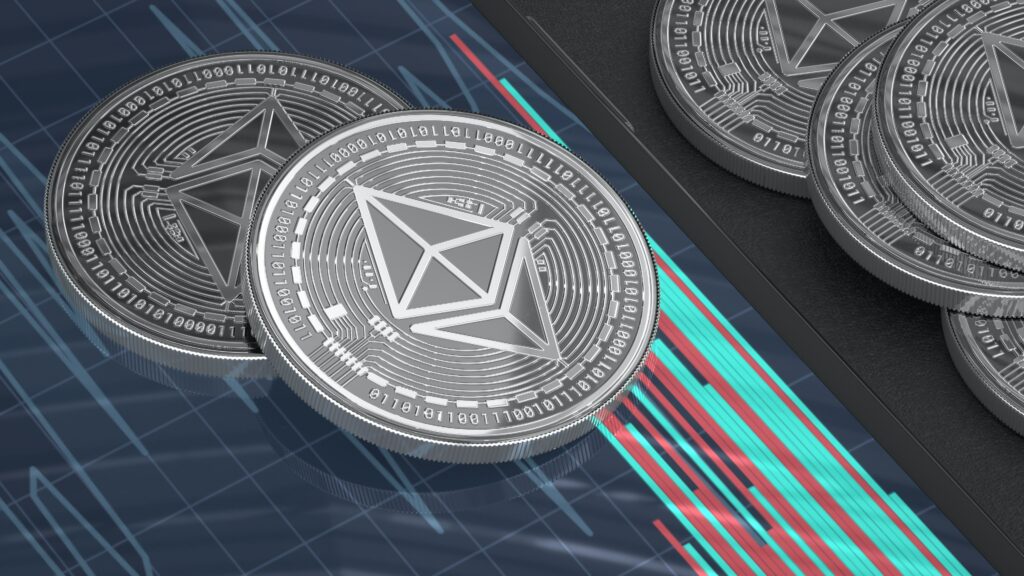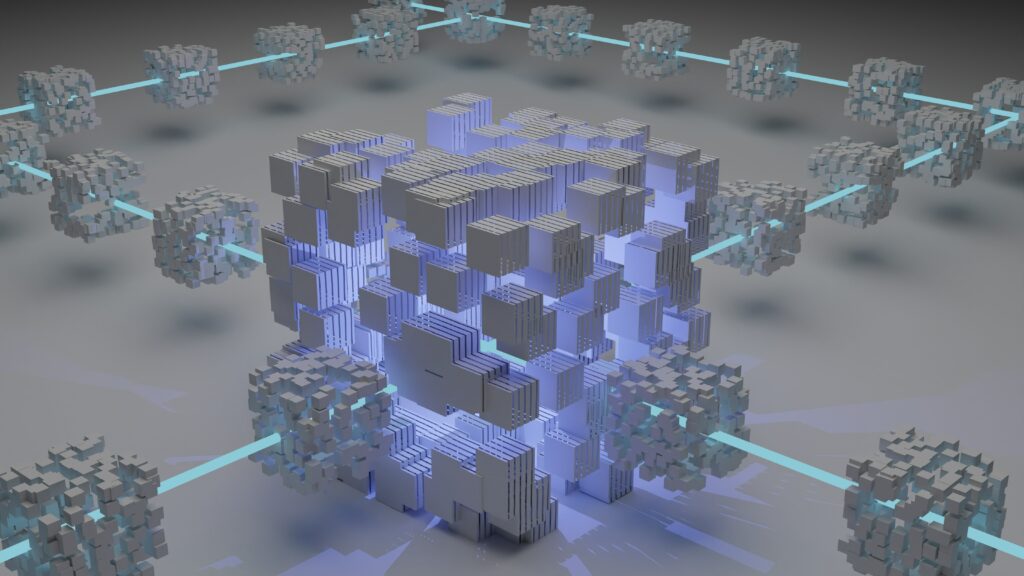Blockchain development is on the rise. If you plan to launch a project based on its concept, we’ll help you find qualified experts.
Blockchain Wizards — Guide to Hiring a Pro
Blockchain is one of the top practical areas of software development. Naturally, the job market saw a flood of specialists who can design anything: from a digital currency to an entirely new blockchain protocol. Or a financial service.
So, how can you tell that your candidate is good? Which guidelines to follow if you need to hire a blockchain developer? Let’s dive in!
A must-have portfolio — The hard skills
Skillset and expertise are the top criteria. The problem: when you want to hire someone for blockchain development, there’s basically a jillion of specific technical skills to consider.
There are two blockchain development types:
- App development
This aspect refers to building apps on top of the blockchain. A dev uses an already existing blockchain architecture to make a finished product for the end-users.
In essence, it’s just like standard web or mobile app development,
While you don’t need to architect a blockchain client from scratch, you also need to consider a lot of factors: scalability, transaction cost, privacy, etc.
- Core development
“Core” speaks for itself: a dev will build a new blockchain client from scratch.
It’s painstaking and requires a lot of time. Odds are, you won’t find a developer to pull that stunt, as they are a rarity so far. (Or it will be super costly).
And now, we’ve prepared some of the top parameters to assess a blockchain developer’s competence.
1. Programming skills
Your candidate must show proficiency in such languages as Java, JavaScript, Node.JS, Python, Solidity, C/C#, and other similar PLs.
All of these fulfill various essential goals. For instance, Solidity is a go-to programming language when you need to design a smart contract.
Node.js offers a decent alternative dubbed Truffle. This framework is also dedicated to making smart contracts.
A key benefit of Truffle is its native network, known as Ganache. It allows making smart contracts valid in Ethereum.
At the same time, it will be separated from Ethereum’s network — “mainnet”.
In simple words, it’s an excellent thing to test a smart contract before releasing it publicly. And other PLs mentioned have their own extra perks.
2. Encryption
Security is probably the biggest priority in smart contract development. If it springs the leak, your whole project will sink, causing extensive reputational and financial damages.
So, it’s critical that your candidate must know how to handle encryption and security.
Perhaps, the top tool used for ensuring both is Secure Hash Algorithm (SHA). It’s a bunch of cryptographic functions.
They make data that runs through your system “unreadable” for the malicious actors. It is possible thanks to the:
- compression
- modular additions
- bitwise operations
Your jobseeker can claim to know MD5 — another cryptographic tool for security. While understanding how this thingy works is great, MD5 is a flawed tool. It gets less and less usage due to its numerous weaknesses.

3. Ethereum
There are various types of blockchain. It depends on your project whichever to use. Ethereum blockchain is extremely popular as it:
- Offers fast processing of transactions.
- Allows developing decentralized applications (dApps).
- Powers up popular products: Binance, SushiSwap, Tron.
If you hire blockchain application developers for a decentralized project, then knowledge of Ethereum blockchain is indispensable.
4. Web development
At first, it may seem irrelevant, but don’t fall for this illusion. Full-stack web development is critical when it comes to releasing your blockchain product to the public.
Check if the applicant has any background with JavaScript, CSS, and other tools from the web developer kit.
They allow creating a GUI that will be simple, clean, and friendly for the end-users. It’s the “package” of your product.
The backend is carried by the pillar called Node.js. It takes care of the server-side of the product. Among all else, you can also install dependencies with this tool.
Even harder skills!
We’ve mentioned the general skillset and knowledge that qualified blockchain engineers must have. Now let’s review some specific skills that blockchain demands.
1. DLT
DLT stands for Distributed Ledger Technology. Basically, it allocates data across a constellation of nodes.
DLT is critical when it comes to validating, record updating and supporting simultaneous access. Basically, DLT is what they call blockchain technology.
2. Consensus
Consensus makes transactions, sales, loans, and many other operations possible within the blockchain. It also allows new people to use your product.
The candidate should understand the logic of consensus. And also be able to explain how it works in simple terms.
3. Sharing
When you get your product set and running, you will attract clientele. At some point, there will be so many users you’ll have to expand your system to accommodate them.
It leads to scalability issues. And they can be solved with sharing databases — sharding. Sharding has one fantastic benefit — horizontal scaling.
Simply put, your databases can grow in size as you get more users. But you won’t need extra servers to accommodate them. All thanks to shared databases!
Plus, they make query response time faster and also preserve your app from outages. Definitely interview your candidate on this topic.
4. Smart contract
Developing a smart contract is an absolute must-have skill. Basically, a smart contract is like a legal authority: it makes sure that all parties involved follow the rules. It’s fully autonomous.
If you hunt for a full stack developer, they must know how to design smart contracts:
- Take care of the “gas” optimization.
- Write them in simple code to reduce transaction costs.
- Make them failproof, self-executing, and solidly immune to hacking.
- Seamlessly interpret a payment service: PayPal, Stripe, Google Pay send, etc.

5. Immutability
This aspect is directly tied to writing smart contracts. Immutability makes the code put in the smart contract irreversible and non-rewritable.
It is a key to providing security for your product, as it prevents possible fraud, hacking, and so on. At the same time, data of a smart contract should be easily changeable — it makes transactions possible.
6. Hyperledger
You may also need to hire Hyperledger developers for your project. Hyperledger Fabric is a massive blockchain network that includes 17 projects: Ursa, Cactus, Explorer, Firefly, Transact, and others.
The best part is that Hyperledger is open-source.
And the perks for Hyperledger developers are quite impressive: digital key protection, smooth scalability, great technical performance, permissioned memberships, and so on.
It was designed in a collaborative effort led by IBM. It’s a ready-to-use business-grade blockchain. And with its flexibility, it may become one of the widely used blockchain standards.
What else to know?
Okay, now you know which skills should “embellish” a resume of a blockchain pro. As a cherry on top, use these questions to test their knowledge even more:
- Name three blockchain types.
- What is scriptPubKey used for?
- Why are block identifiers necessary?
- How does DTS differ from the blockchain.
- How would you prevent double-spending?
- What does “block” in the term “blockchain” signify?
- What does the unidirectional cryptographic hash function do?
- Name the difference between Ethereum/Bitcoin blockchains.
- Explain the difference between proof of stake and proof of work.
- Do you know anything about hybrid blockchain? (If yes, elaborate).
Why is blockchain important?
As Forkast reports, 81 of the world’s 100 top companies use blockchain. They include Bank of China, J.P. Morgan, Disney, Nvidia, Samsung, and others.
Blockchain helps to:
- Decentralize data.
- Trace transactions, etc.
- Reduce operational costs.
- Provide faster performance.
It definitely came to stay. So, the earlier your company hops on the blockchain train, the better it will be for you, your clientele, and you partners. Act now to reduce the cost to hire a blockchain developer.
It’s block o’clock
With our help, you can find a software engineer of any specialty and create a high quality product. Application development, blockchain solutions, machine learning, web design — we have the best talents on the market!
